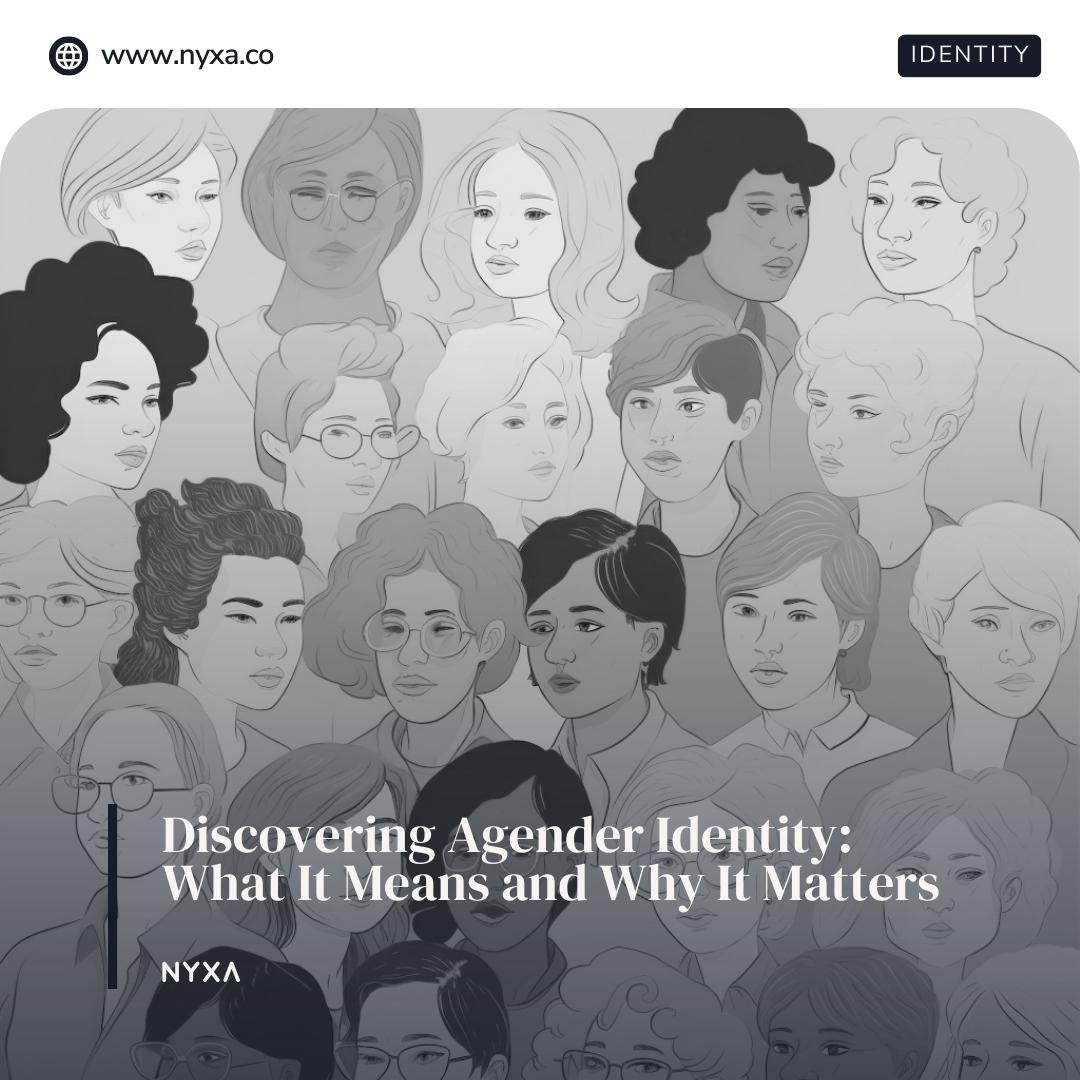
Discovering Agender Identity: What It Means and Why It Matters
Share
Agender identity is a concept that's still unfamiliar to many. But what does it mean, and why is it important?
What Is Agender?
Agender refers to a lack of gender identity. Unlike male or female, someone who identifies as agender doesn't associate with any gender. It's like a blank canvas, not confined by traditional gender roles or norms. Imagine a spectrum of colors, and agender is the absence of color.
The Spectrum of Gender Identity
Gender is complex and exists on a spectrum. From male to female, genderqueer to genderfluid, agender sits as one possibility within a rich and diverse continuum.
Exploring Agender Identity
Understanding agender identity goes beyond mere definitions. It involves a deeper look into history, psychology, and personal experience.
Historical Background
Historically, many cultures have recognized more than two genders. Agender identity, although modern in terminology, has roots in various societies. Think of it as a river that has always flowed but only recently has been named.
Psychological Aspects
Self-Discovery and Acceptance
Agender individuals may go through a journey of self-discovery, finding comfort in knowing there's a term for what they feel. It's a story of acceptance and authenticity.
Challenges and Misconceptions
Like walking against the wind, agender individuals often face challenges and misconceptions. Society's binary view can lead to misunderstandings and even discrimination. Coming out as agender can be a deeply personal and sometimes challenging experience. Support from family, friends, and community is crucial. Navigating relationships as an agender individual can be complex but also rewarding. Open communication and mutual respect form the foundation of healthy relationships. Finding community support through local groups or online platforms can provide a sense of belonging and understanding that's vital for many agender individuals.
The Agender Community
The community aspect cannot be ignored. From support to public figures, it's an essential part of the agender narrative.
Support and Resources
Finding support is like finding an oasis in the desert. Various online platforms provide valuable information, support, and community for agender individuals. Websites like GLAAD and The Trevor Project are excellent resources.
Agender Celebrities and Influences
Famous agender personalities have become beacons of inspiration. They're like lighthouses, guiding those in search of identity.
Legal and Social Aspects
While international human rights laws are in place, the application and enforcement in regard to gender identities, including agender, vary across different countries and regions.
Legislation and Rights
Some countries have enacted laws to protect agender individuals from discrimination, but the legal landscape remains inconsistent worldwide. Legal recognition is a key part of equality. From birth certificates to anti-discrimination laws, progress is being made, albeit slowly.
Societal Acceptance and Challenges
Like a puzzle missing pieces, societal acceptance is incomplete. While strides have been made, challenges remain.
How to Support and Respect Agender Individuals
We all play a part. Supporting and respecting agender individuals is a collective responsibility.
Tips for Allies
From using correct pronouns to creating inclusive spaces, allies can make a difference. It's about empathy and open-mindedness.
Agender identity is not a trend or a buzzword; it's a real and valid identity. This guide is a step towards understanding, acceptance, and support. Like learning a new language, it opens doors to empathy, compassion, and humanity.
